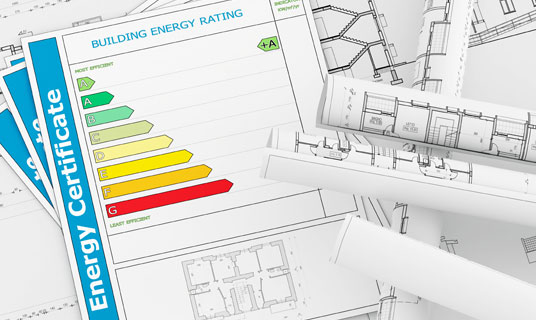The roaring 2020s? For energy efficiency, most certainly.
It’s May 2021 and in six months the United Nations climate change conference, COP26, is due to be hosted in Glasgow. It’s a proud moment for us all to be hosting such an event and you can see why we’re hosting it. Renewables met 97.4% of Scotland’s energy demand in 2020, a figure that has trebled within the last ten years and that’s enough to power 7 million households. That’s fantastic progress and we should acknowledge it.
Even so, there is a sense of urgency for the coming conference and most experts believe that we have eight and a half years to do something radical to change the way we use energy to live our lives and heat our homes. Under the Climate Change Scotland Act 2019, Scotland has a legal obligation to reduce all greenhouse gas emissions to zero by 2045. 2045 feels like a very long time away whereas 2030 doesn’t feel quite so far. How much do we need to reduce emissions by then? 75%. In a country with an oil and gas sector and a large petrochemical industry it’s going to be a political and financial challenge to achieve especially with a long recovery ahead of us.
Energy use from 2.5m domestic dwellings contributes to 15% of greenhouse emissions in Scotland so radical changes are needed. One change already in sight is the abolition of new boiler installs for new build properties from 2024. Furthermore, the International Energy Agency (IEA) has just released a report entitled ‘Net Zero by 2050’ that states that no new fossil fuel boilers should be sold, globally, from 2025.
The Energy Efficiency Standard for Social Housing (EESSH) has formed the bedrock of energy efficiency improvements and strategy to this point. We are now in the period of working towards the new EESSH2 standard, which requires that all properties should meet EPC rating ‘C’ or better by 2035. We already know that this just won’t be possible for some of our stock like tenements due to the building construction. Where that is the case, the government will require these to achieve the best possible standard subject to available technology and cost-effectiveness.
A review is due to take place in 2022, brought forward from 2025, as laid out in the recently published, Heat in Buildings Strategy – Achieving Net Zero Emissions consultation. Some highlights from the report include the estimation that it will require £33bn to achieve the vision to Net Zero! The public sector cannot accommodate that cost on its own so we will need to work together across the industry to fund this requirement. The current strategy outlines that between 2023 – 2025 we will need at least 50% of replacement heating systems to be zero emissions systems. By 2028, the majority of domestic and non-domestic off the mains gas grid will be zero emissions. Finally, by 2030 we will require over a million homes and around 50,000 non-domestic properties have converted to zero or low emissions heating.
Here at SPA, we consulted with our partners and the industry to develop our new energy efficiency frameworks covering both consultancy and works. There’s a range of local Scottish and national companies on both for you to choose from. The consultancy aspect covers anything from EPCs, advising on your strategy and even project managing the works. On the installation side we were extremely ambitious with twenty-one individual measures to choose from. In tackling the challenges of net zero we included: district heating, biomass, heat pumps, battery storage, electric heating and much more.
We would very much encourage that you begin looking at your strategies to how you are going to meet these onerous targets right now. One advantage of utilising our frameworks is the ability to collaborate. We look to support partners of all sizes and if your organisation is smaller, it could be an idea to collaborate with other Associations in your area to combine your purchasing power through our frameworks. We have examples of Associations in the Scottish Borders collaborating to install new heating systems, but they still retain their own individual control over their contracts.
Outside of traditional heating systems there will be an overall requirement to look at all aspects of the building fabric, especially for older properties where traditional improvements, such as external wall insulation cannot be installed. SPA will shortly be tendering a new windows framework where we will focus on high performing windows with options for triple glazing to assist you in meeting these standards alongside the already. Look out for more news on this in the very near future.
It’s going to be an exciting and very busy decade ahead for us all. It’s never been more important as we have learned over the last year especially. We look forward to supporting you over the years and would welcome any questions or ideas from you, please just get in touch.
Graham Collie
Technical Support Manager


